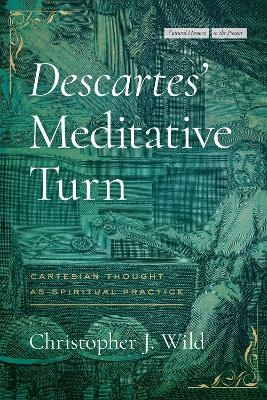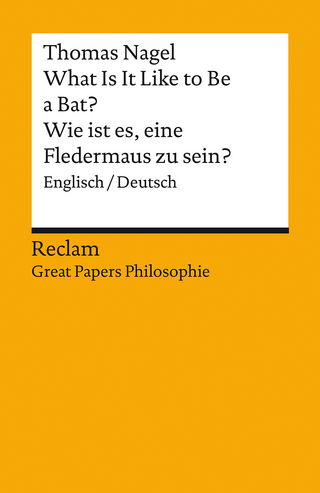
Descartes’ Meditative Turn
Cartesian Thought as Spiritual Practice
Seiten
2024
Stanford University Press (Verlag)
978-1-5036-3859-4 (ISBN)
Stanford University Press (Verlag)
978-1-5036-3859-4 (ISBN)
Why would René Descartes, the father of modern rationalist philosophy, choose "meditations"—a term and genre associated with religious discourse and practice—for the title of his magnum opus that lays the metaphysical foundations for his reform of all knowledge, including mathematics and sciences? Why did he believe that the immortality of the soul and the existence of God, which the Meditations on First Philosophy set out to demonstrate, can only be made self-evident through meditating? These are the question that Christopher Wild's book answers.
Descartes discovered the "foundations of a marvelous science" through a dramatic conversion in southern Germany in the winter of 1619. The spiritual and cognitive exercises, derived from ancient philosophy and the Christian meditative tradition, which Descartes deployed in the Meditations, enable readers to discover metaphysical truths with the same degree of self-evidence with which Descartes did during his own conversion. Descartes' meditative turn, Wild argues, brings to a culmination a lifelong preoccupation with the practice or craft of thinking, known as Cartesian method. By joining meditation to method the Meditations becomes the founding document for a Cartesian "art of turning," a new practice of both thought and life.
Descartes discovered the "foundations of a marvelous science" through a dramatic conversion in southern Germany in the winter of 1619. The spiritual and cognitive exercises, derived from ancient philosophy and the Christian meditative tradition, which Descartes deployed in the Meditations, enable readers to discover metaphysical truths with the same degree of self-evidence with which Descartes did during his own conversion. Descartes' meditative turn, Wild argues, brings to a culmination a lifelong preoccupation with the practice or craft of thinking, known as Cartesian method. By joining meditation to method the Meditations becomes the founding document for a Cartesian "art of turning," a new practice of both thought and life.
Christopher Wild is Professor of Germanic Studies, Theater & Performance Studies and Associate Faculty in the Divinity School at the University of Chicago.
Introduction: Descartes' Meditative Turn and the Tradition of Spiritual Exercises
1. Founding First Philosophies: Descartes' Conversion
2. Method and Meditation: The Cartesian Art of Turning
3. The Discernment of Ideas and the Evidence of the Cogito
4. Cartesian Ceroplastics: Meditating the Mediality of the Mind
5. Adversio, Animadversio, and Attentio: Turning toward God
6. "To Gaze with Wonder and Adoration": Contemplatio Dei and Meditative Ascent
Acknowledgments
Notes
Bibliography
Index
| Erscheinungsdatum | 22.02.2024 |
|---|---|
| Reihe/Serie | Cultural Memory in the Present |
| Zusatzinfo | 11 halftones |
| Verlagsort | Palo Alto |
| Sprache | englisch |
| Maße | 152 x 229 mm |
| Themenwelt | Geisteswissenschaften ► Philosophie ► Philosophie der Neuzeit |
| Sozialwissenschaften | |
| ISBN-10 | 1-5036-3859-6 / 1503638596 |
| ISBN-13 | 978-1-5036-3859-4 / 9781503638594 |
| Zustand | Neuware |
| Informationen gemäß Produktsicherheitsverordnung (GPSR) | |
| Haben Sie eine Frage zum Produkt? |
Mehr entdecken
aus dem Bereich
aus dem Bereich


